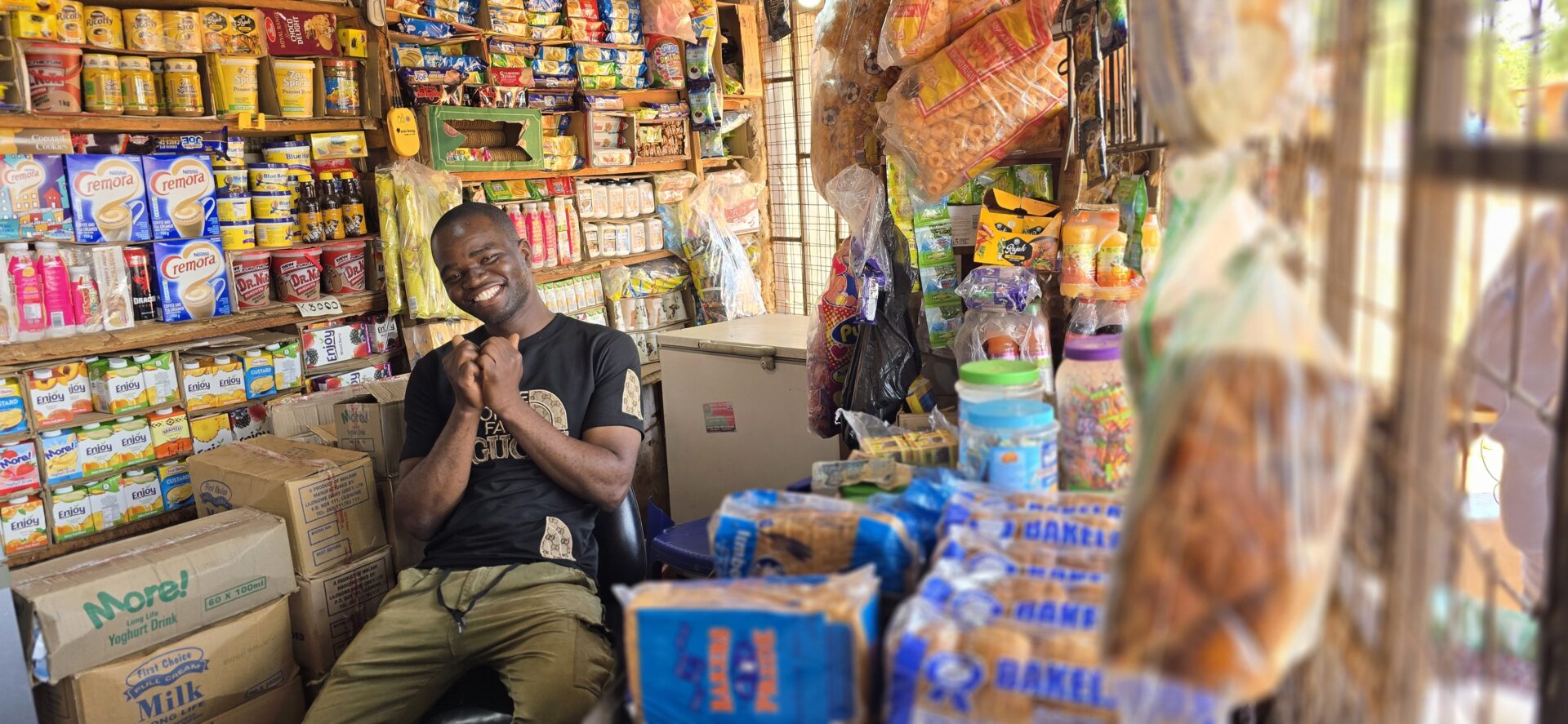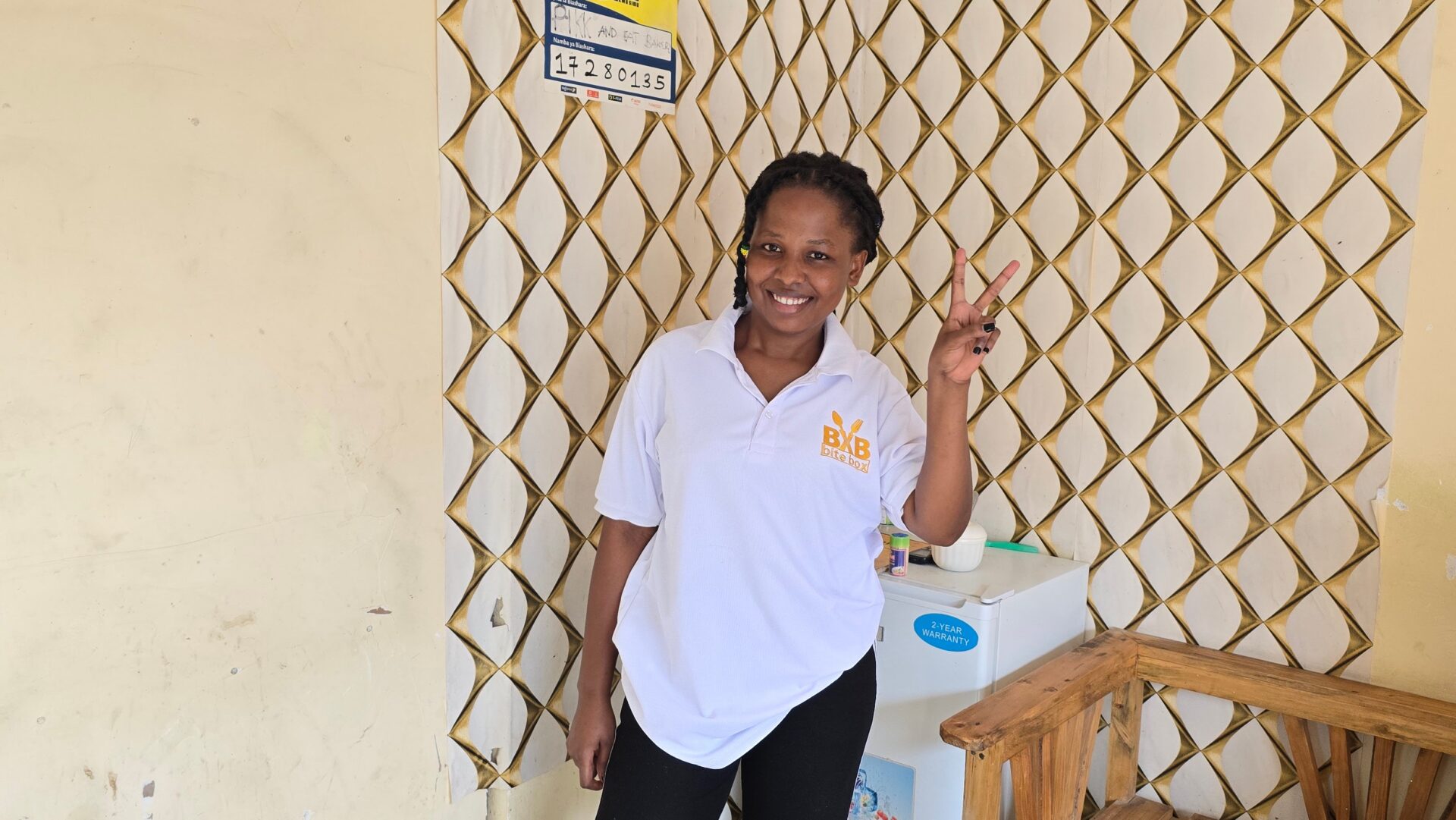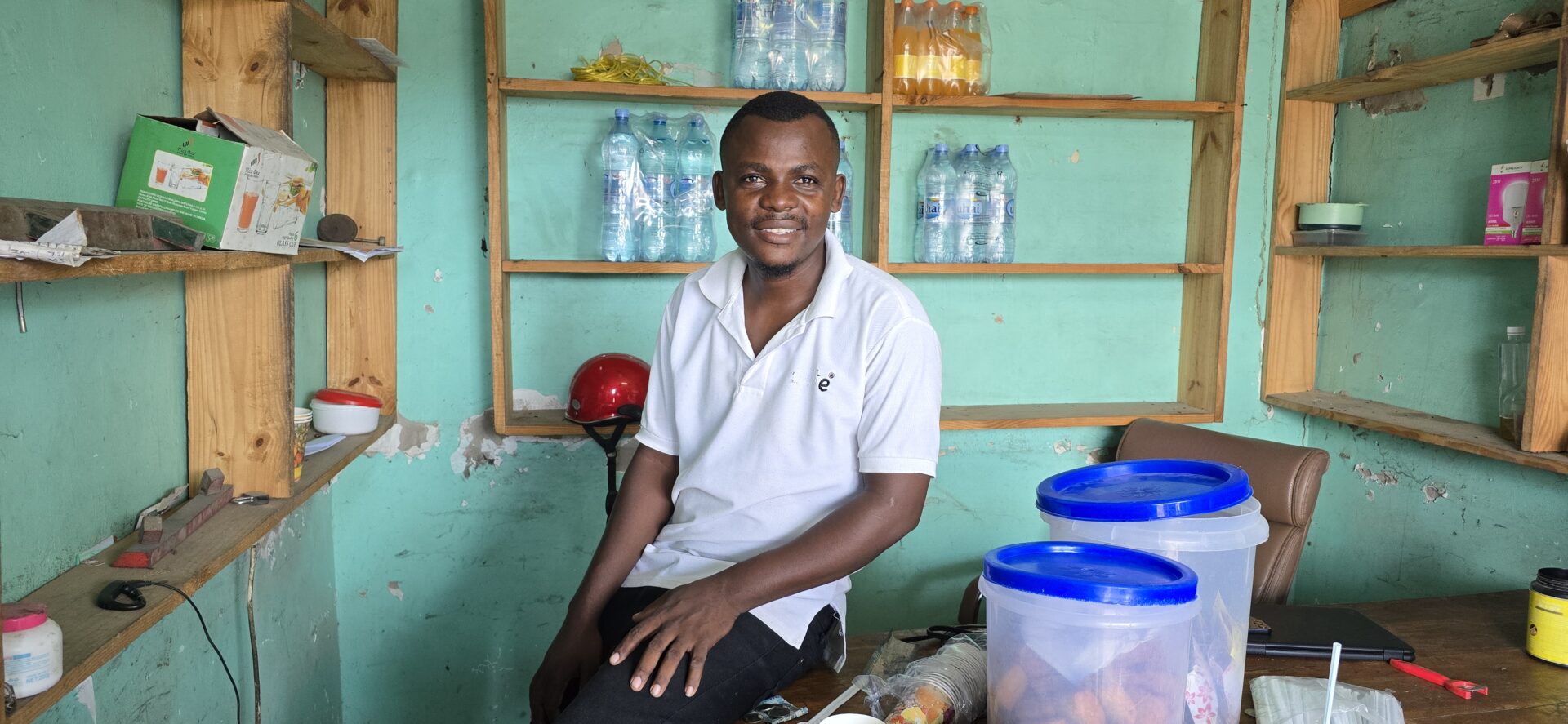Entrepreneurship is for Everyone: Stories of Resilience from Young African Entrepreneurs
Like millions of young Africans, Malawian Felix Kantande Nkhoma first became an entrepreneur out of necessity. “I started my business based on the experience of poverty,” he says. But as he hustled to build his small gaming center, Felix knew he wanted a life pointed towards something bigger than just surviving. “I am not poor, I just don’t have opportunities,” he told his mother stubbornly as a child. “Once I get an opportunity, I will run with it.” So when he saw a Facebook post earlier this year advertising a digital skills training run by a local tech hub, mHub, he jumped at the chance.
Today, Felix is among the first graduates of the Digital Business Program under “Going Beyond – Partnering for a Youth-Led Future,” a five-year project by Digital Opportunity Trust (DOT) and the Mastercard Foundation to support 300,000 young entrepreneurs in Côte d’Ivoire, Malawi, Zambia, and Tanzania. Working through local partner organizations like mHub, the project operates on a peer-to-peer model. Organizations train recent graduates to act as Youth Leaders, delivering an innovative digital business curriculum to their peers. The goal is to help ambitious young people like Felix develop the skills they need not to scrape by in their businesses, but to thrive as 21st century entrepreneurs. In total, 2935 young business owners in Malawi and Tanzania – 71 percent of them women – have completed the training so far, flinging open a door to a bigger future for their businesses, and themselves. Felix, for instance, says he now dreams of using his gaming center to promote the development of local Malawian video games. “For the next five years, I have a great vision,” he explains.

Like Felix, many other young entrepreneurs also came to Going Beyond with little formal training in how to manage and market a business. What they did have were enterprises their communities badly needed – from corner stores to mobile money suppliers to chicken farms – that they had built on talent, imagination, and grit. “I started my business because I have never seen myself working for someone else,” says Kulaisi Matiki, who runs a hair extension and braiding business in Malawi’s capital, Lilongwe, and also sells fresh vegetables and brooms. She loved the independence and creativity of the work, but sometimes struggled to keep herself afloat – a feeling shared by many of her peers. “I am passionate about doing business. It’s embedded in my blood,” explains Cecilia Mushi, a restaurant owner in Tanzania. But before the Going Beyond training, she admits she “was not keen on the small details.” 
The Going Beyond training put Cecilia and other young entrepreneurs in the driver’s seat of their business’s finances for the first time. “I know how to keep my records, so now I have the education to drive myself forward,” says Eva Yoeli, a salon owner in Mwenge, a busy business centre in Dar Es Salaam, Tanzania. For many, learning to market themselves online was equally revelatory. Before the training, Tanzanian corner store owner Salum Saidi said he believed that “if I displayed my products in the shop, customers would come automatically.” But he realized he could reach a far bigger public by advertising himself on social media. Each skill he and the others learned was small on its own, but as they finished the training and returned to work, the cumulative effect was already clear. “My business will not look the same,” says Kulaisi. “Most importantly, I will also not look the same.”
What’s more, from the moment Going Beyond’s young entrepreneurs completed their training, they were already thinking of how they could pay the experience forward. “In the coming years, I want to employ other ladies,” explains Ireen Yohane, who sells cosmetics and plaits hair in Lilongwe, Malawi. Salum, in Tanzania, says he now plans to open a bigger shop and “employ at least two or three people.” For many of these young people, hiring people to work with them was about more than just improving their own bottom line. Noah Ishmail, who runs a welding and fabrication business in Malawi, explains it this way: “My vision is to grow my business and be able to transfer these skills to other young people in my community.”

That is something Felix, the gaming center owner, has already started to do. Since his training, he has hired two people. “I have imparted the skills that I learned and trained them in online business marketing,” he explains. When he looked back on his experience with Going Beyond, he realized he was making good on his promise to his mother all those years ago.
He found an opportunity, and he was running with it.
Balises
Êtes-vous notre prochain leader communautaire, champion numérique ou innovateur social ? En savoir plus sur les modalités d'adhésion #DOTYouth
Rejoindre #DOTYouthPartager ce Poste
Plus d' ARTICLES
En savoir plus comme ceci.